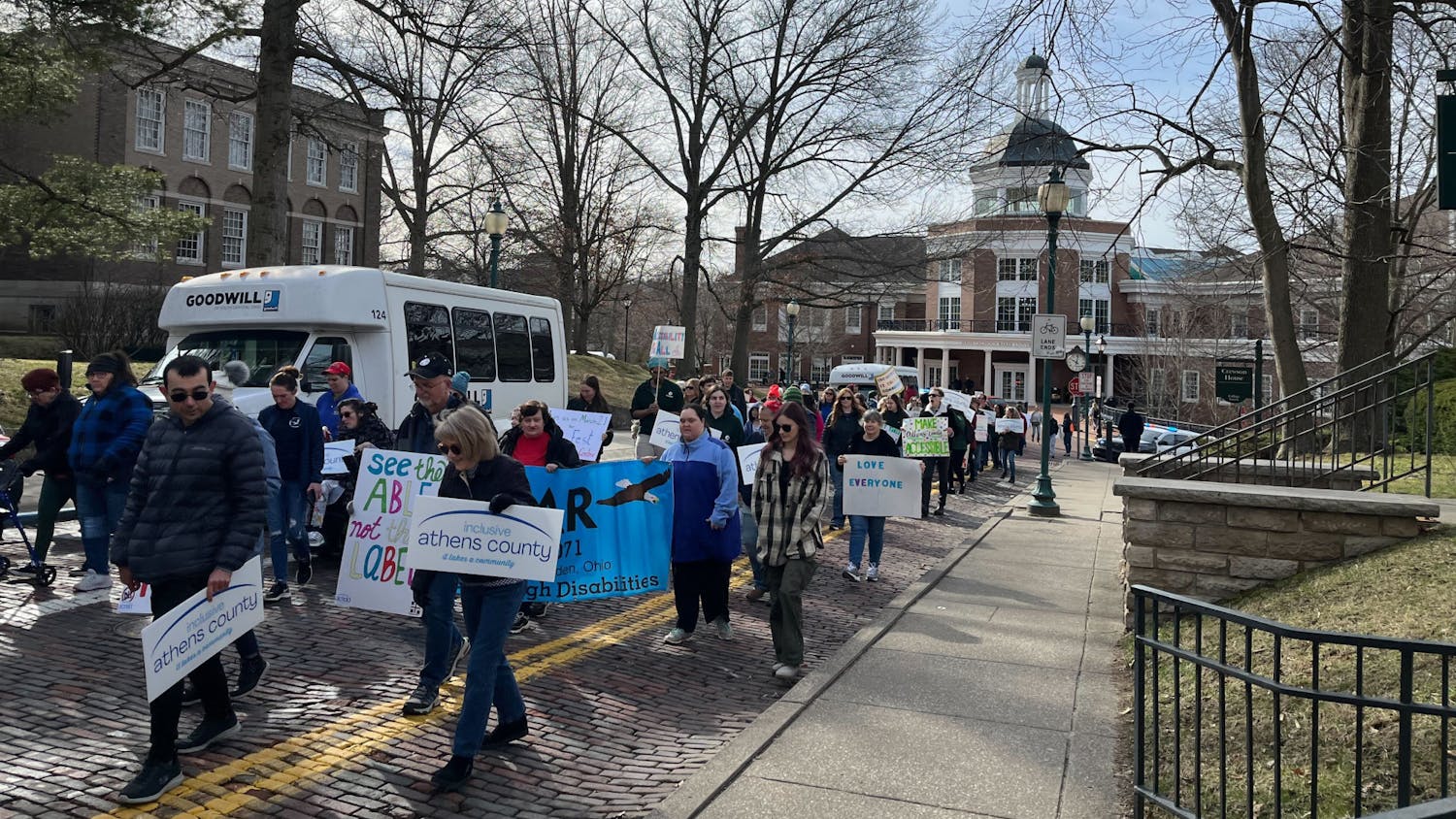Correction appended.
David Crane never expected to become a Chief Prosecutor for the International War Crimes Tribunal for West Africa.
After investigating and prosecuting an African leader for war crimes, Crane, who is an Ohio University alumnus, is now returning to Athens to spend a year as an OHIO Glidden Visiting Professor.
On Nov. 13, the Center for Law, Justice and Culture hosted a presentation by Crane on his work as a humanitarian prosecutor.
The event “(gave) everyone a different perspective,” McKenna Knisley, a junior studying sociology and pre-law, said. It “brought light to international law.”
Crane is known for seeking justice for the people of West Africa — murder, rape, maiming and mutilation of more than 1.2 million people during the two civil wars in Sierra Leone. He also famously prosecuted Liberian President Charles Taylor. That inspired his two books, The Founders and Every Living Thing.
Crane earned a bachelor’s degree in history in 1972 and a master’s in African Studies in 1973 — both from OU. He attended Syracuse University College of Law and earned a Juris Doctor in 1980.
Crane was an army brat for the majority of his childhood. For the past several decades, however, home has been in the Great Smoky Mountains of Western North Carolina. He now resides in Maggie Valley.
“Looking back on it now, sometimes it was planned and sometimes it was just based on expertise and walking through doors that allowed me to continue to practice.” Crane said. “Just like any specialty, like any other profession. So, I had a pretty strong development over time in the federal government.
“It’s interesting … There’s only 12 living — current or former — chief prosecutors in the world,” Crane said. “I was sitting around having a beverage with them a few years ago and I asked … ‘Hey, did any one of us ever apply for, seek or ask for the job that we have?’ And not one of us did. All of us had very successful senior careers in our various countries and our various governments. But … we got what we called ‘the phone call’ out of the clear blue sky.”
That phone call defined the rest of Crane’s life and set the path for his career.
“The Bush Administration asked me if I would like to be the United States nominee for the position of Chief Prosecutor (of the) International War Crimes Tribunal for West Africa,” Crane said. “And it just came out of nowhere. I was a little bit skeptical and skeptical all the way to six months later when (I was) asked if I would sort things out in West Africa. I’d never considered it or even dreamed of it.”
Crane investigated all of the people who caused so much pain and suffering, and he tried them for war crimes and crimes against humanity. That included Taylor, who was involved in both the Sierra Leone Civil War and the Second Sierra Leone Civil War.
“I was actually at the scene of the crime and the horror,” Crane said. “I had protection officers all around me for the entire time I was there, and I was under a lot of security, and I wore a level 3A vest everywhere and body armor.
“But, you know, my job was to stay alive and also make sure my people were cared for, which we did,” Crane said. “My job was focused on seeking justice for the people of West Africa.”
Crane’s time spent at OU molded and laid the groundwork to prepare him for his time spent in Sierra Leone. He learned how to become a mature adult and human being. He hopes that his story of going from OU to being a Chief Prosecutor for West Africa displays a story of success that inspires students to work hard and seize the opportunities OU provides.
“I learned leadership. I learned time management. I learned compassion. I learned how to respect somebody,” Crane said. “Looking back on it, it laid the foundation for me to rise to the most senior levels of international community. I learned it all here at Ohio University in Athens, Ohio.”
Correction: A previous version of this report incorrectly stated the number of people affected during the two civil wars in Sierra Leone. The article has been updated to reflect the most accurate information.






